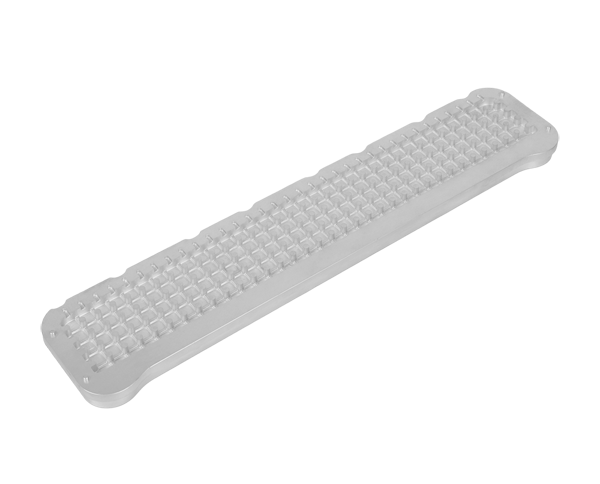2025-03-19 hits:0 source:News

Pressure control is a critical aspect in the aluminum alloy die - casting process, as it significantly influences the quality of the final products.
The Significance of Pressure Control
In aluminum alloy die - casting, pressure is applied to force the molten aluminum alloy into the die cavity. Proper pressure control is essential for ensuring complete filling of the cavity. If the pressure is too low, the molten alloy may not reach all parts of the die, resulting in incomplete castings with voids or misruns. On the other hand, if the pressure is too high, it can cause problems such as flash formation, where excess material squeezes out between the die halves, and increased die wear. Additionally, accurate pressure control affects the density and mechanical properties of the castings. Higher pressure during the solidification stage can help to reduce porosity, resulting in a more dense and stronger product.
Stages of Pressure Application
The pressure application in the die - casting process typically occurs in multiple stages. The initial injection pressure is crucial for quickly filling the die cavity. This stage requires a relatively high pressure to overcome the resistance of the molten alloy flowing through the gating system and into the cavity. As the cavity begins to fill, the pressure may be adjusted to a lower value to avoid over - filling and flash formation. Once the cavity is nearly full, a higher pressure, known as the packing pressure, is applied. The packing pressure helps to compensate for the shrinkage of the molten alloy as it solidifies. By maintaining a sufficient packing pressure, the casting can be densified, reducing the presence of internal voids. The duration of each pressure stage is also carefully controlled. For example, the injection pressure may be applied for a short period, perhaps a few milliseconds, while the packing pressure may be maintained for a longer time, depending on the size and complexity of the casting.
Control Methods and Technologies
Modern aluminum alloy die - casting machines are equipped with advanced pressure control systems. These systems often use sensors to monitor the pressure in real - time. For instance, pressure transducers can be installed in the injection system to measure the pressure accurately. The data from these sensors is then fed into a control unit, which adjusts the pressure according to a pre - set program. Some die - casting machines also employ closed - loop control systems. In a closed - loop system, the control unit compares the actual measured pressure with the desired pressure value. If there is a deviation, the control unit adjusts the parameters of the hydraulic or pneumatic system that generates the pressure. This ensures that the pressure remains within the desired range throughout the casting process. Additionally, the control system can be adjusted to account for factors such as the temperature of the molten alloy, which can affect its viscosity and, consequently, the required pressure for filling the die.
Read recommendations:
LED Cold Forged Downlight Radiator
aluminum extrusion profile manufacturers
lf you have any questions or comments, you can leave us a message and we will reply to you as soon as possible
